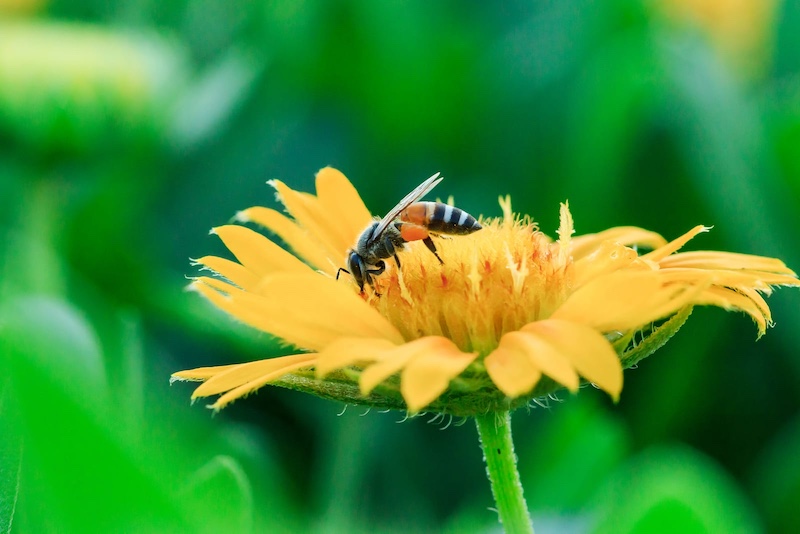Bees are one of nature’s most fascinating and essential creatures. From pollinating plants to producing honey, their role in our ecosystem is invaluable. However, many people are unaware of just how remarkable these tiny insects are. Let’s explore 10 incredible facts about bees and their importance to our planet.
1. Bees Are Master Pollinators
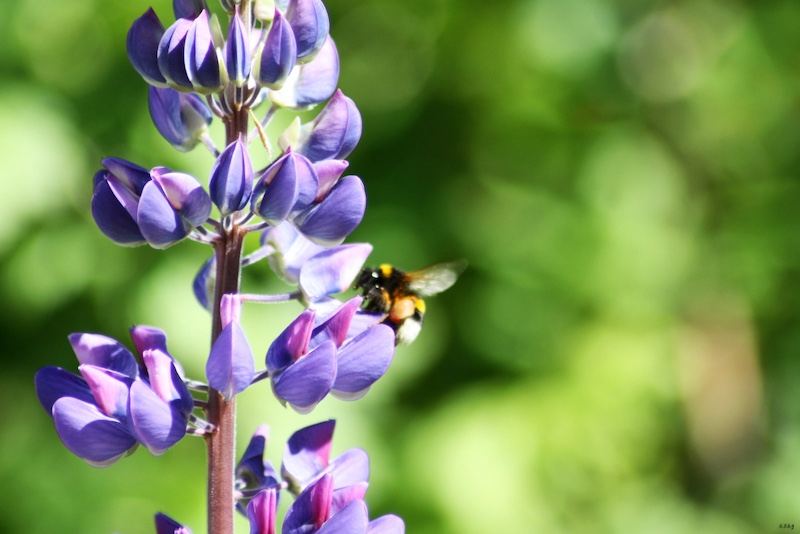
One of the most well-known facts about bees is their role as pollinators. Approximately 75% of the world’s flowering plants rely on pollinators like bees to reproduce. Without bees, crops such as apples, almonds, blueberries, and cucumbers would suffer, drastically reducing food diversity. In fact, bees contribute to around $20 billion in crop production annually in the U.S. alone.
2. Honeybees Are Social Insects

Honeybees are highly social and live in colonies that can contain up to 60,000 members. Each colony consists of three types of bees: the queen, worker bees, and drones. The queen’s sole job is to lay eggs, while the workers, who are all females, handle everything else, from gathering nectar to protecting the hive. Drones are the male bees whose main role is to mate with a new queen.
3. Bees Use a “Waggle Dance” to Communicate
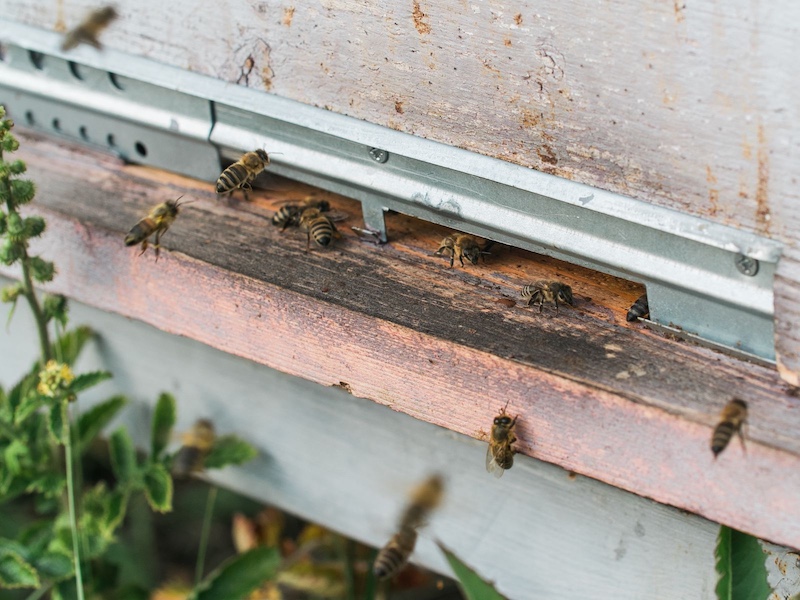
Bees have a unique way of communicating with one another. When a worker bee finds a good source of nectar or pollen, it performs a waggle dance to direct other bees to the location. The direction and duration of the dance convey detailed information about the food source’s distance and direction relative to the hive.
4. Bees Are Vital for Biodiversity
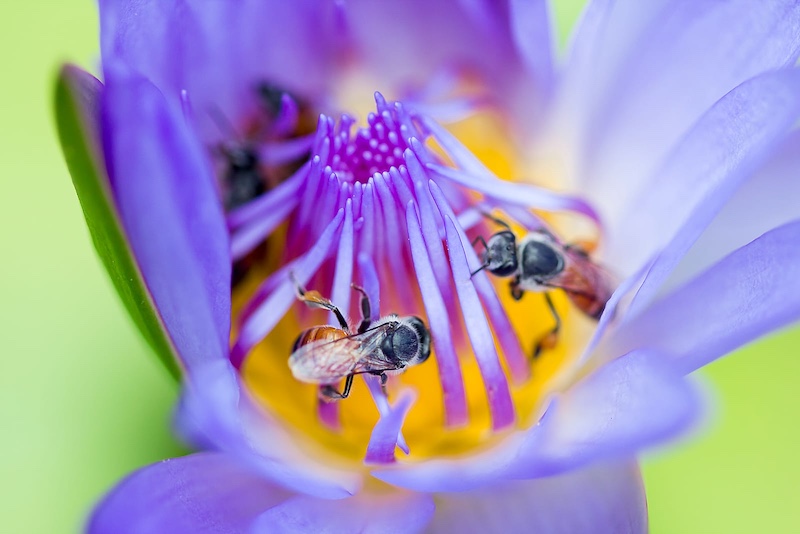
Bees play a crucial role in maintaining biodiversity. By pollinating a wide variety of plants, they ensure the survival of different species. Without bees, the balance of ecosystems would be disrupted, leading to a decrease in plant species and, consequently, the animals that depend on those plants for food and shelter.
5. Honey Is a Miracle Food

Honey isn’t just delicious—it’s packed with health benefits. It has antibacterial and antifungal properties and has been used for centuries as a natural remedy for wounds and infections. Honey is also the only food that includes all the substances necessary to sustain life, including enzymes, vitamins, minerals, and water.
6. Bees Can Recognize Human Faces
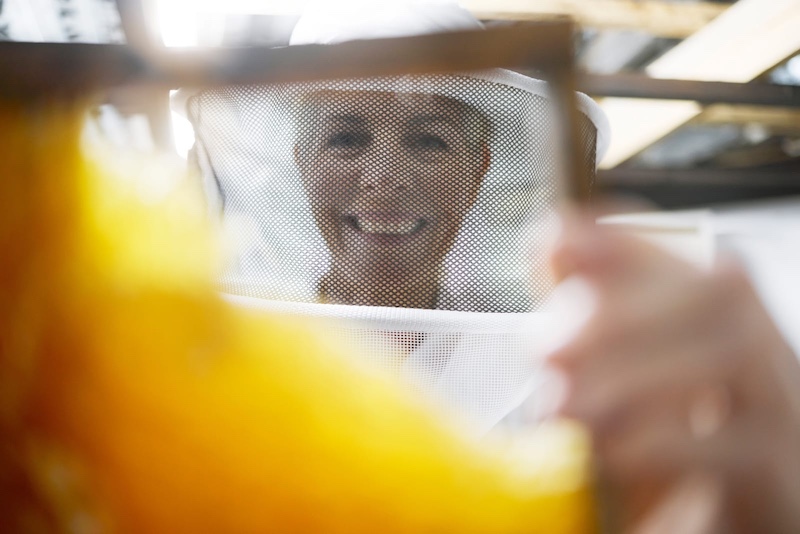
It may come as a surprise, but bees have the ability to recognize human faces. Studies have shown that bees can distinguish between different human faces using pattern recognition. This ability helps bees navigate their environment and find their way back to the hive, even when encountering obstacles.
7. Bees Are Essential to Global Food Security

Without bees, many of the foods we rely on would become scarce. Approximately one-third of the food we consume daily depends on pollination by bees. This includes fruits, vegetables, and even crops like coffee and cotton. Their role in food production makes them a critical component of global food security.
8. Bees Help Combat Climate Change

Bees contribute to fighting climate change by pollinating trees and plants that absorb carbon dioxide. By promoting plant growth, bees help enhance the Earth’s natural ability to sequester carbon, reducing the amount of greenhouse gases in the atmosphere.
9. Bees Have Declined Significantly in Recent Years
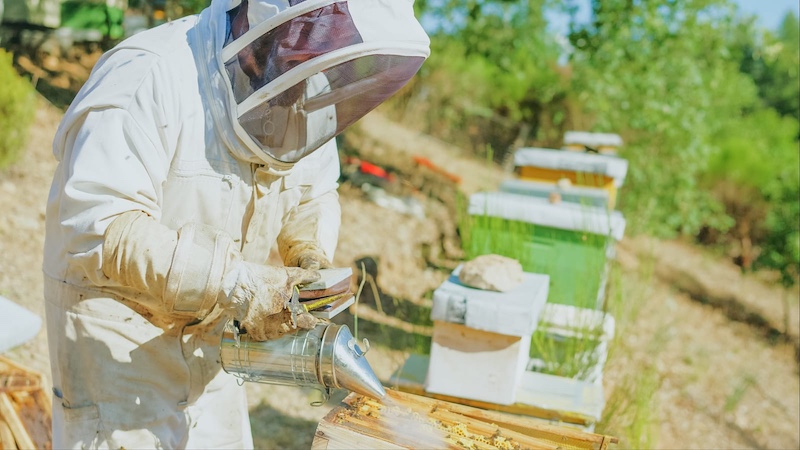
Unfortunately, bee populations have been declining at an alarming rate due to factors such as habitat loss, pesticide use, and climate change. This phenomenon, known as colony collapse disorder (CCD), threatens not only bees but also the food systems that depend on their pollination.
10. Bees Have Been Around for Millions of Years
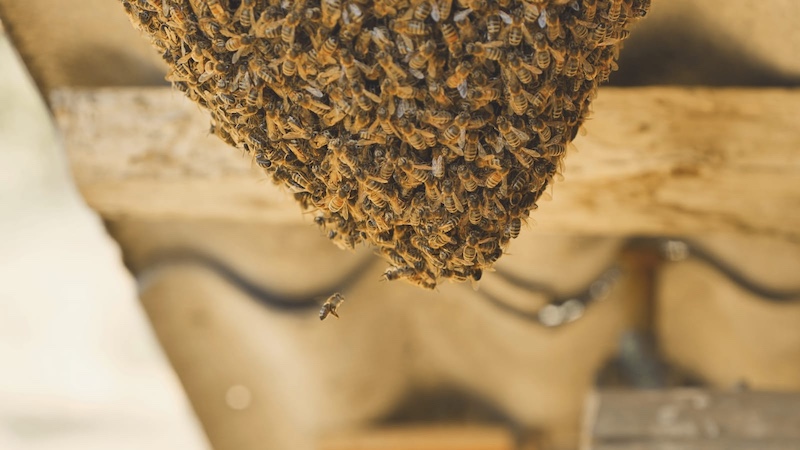
Bees are ancient creatures, having existed for about 130 million years. Fossil evidence shows that bees coexisted with dinosaurs and have survived numerous environmental changes over the millennia. Their long history is a testament to their adaptability and resilience, making them one of the oldest and most successful species on Earth. Please Note: This content was created with the assistance of AI and thoroughly edited by a human before publishing.

